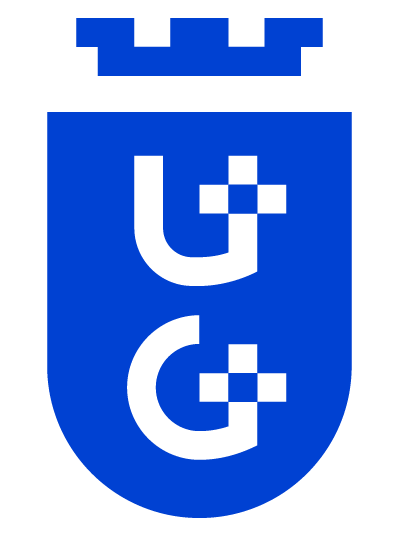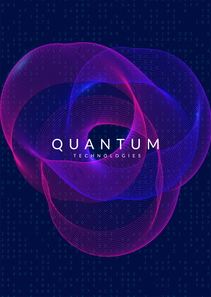
Quantum Information
Technology

Quantum Information Technology (QIT) is an innovative and rapidly developing global field of study, driven by the realisation that the seemingly weird features of the microscopic quantum world can, remarkably, enable new technologies which would be otherwise impossible. These include unbreakable cryptography, ultraprecision measurements, and quantum computers which can solve problems that are intractable on any classical computer.
These developing technologies have the potential to revolutionise the modern world: from mobile phones to medicine, chemistry, and finance.
APPLYExample of QIT Master’s Programme – Physics Profile
| Semester I | Semester II | Semester III | Semester IV |
|---|---|---|---|
| Mandatory Courses | |||
|
Probability and Information Theory Introduction to Quantum Mechanics Mathematical Methods of Quantum Information Language Course 1 Programming |
Quantum Computation Quantum Cryptography Signatures of Non-classicality Language Course 2 |
Physical Implementations of Quantum Information Philosophy of Science Language Course 3 MA Seminar Research/Professional Project |
MA Seminar Research/Professional Project Basic Micro-entrepreneurship Language Course 4 |
| Elective Courses | |||
| No elective courses in the first semester |
Coherence and Decoherence in Superconducting Qubits Categorical Quantum Mechanics |
Quantum Thermal Machines Quantum Optics |
Advanced Topics in Quantum Foundations |

Enrollment process
Intake for academic year 2025/2026 starts June 3rd, 2025 and ends July 18th, 2025.,
Candidates submit the application material via the IRK – university’s official e-recruitment system. Recruitment fee of 85 PLN has to be paid before the end
of the recruitment. Candidates are invited to an online interview that takes place July 21st, 2025 or July 22nd 2025.
Student Experience
When I applied to this program, I wasn’t sure if I was “smart enough” or if quantum tech was too far out of reach. Well, it isn’t! What I’ve learned so far is that you don’t need to have all the answers right away, what matters most is your curiosity and willingness to learn.
This department has been an incredible support system. The professors are not just brilliant; they’re patient and always ready to guide you through tough concepts. My classmates? Very diverse and some of the most inspiring people I’ve ever met. We challenge each other, collaborate on projects, and even laugh together when things get overwhelming.
One of the best parts about studying QIT is seeing its real-world impact. I’m constantly reminded that what we’re learning today will shape tomorrow’s world. To anyone thinking about joining us, take the leap!
Let’s build the future together, one qubit at a time!
– Osarobo Obasogie (final year master’s student)In just two years, this program covers a lot of important theoretical classes that really help us understand quantum technology better. It even includes some innovative topics that push beyond the usual physics courses. It is a great opportunity for anyone interested in diving into quantum information technology.
– Ali Mammadzada (current student)Studying Quantum Information Technology in Gdańsk was an incredible journey. The two years were intense, balancing courses and thesis work, but the effort paid off. By the end, I had gained exposure to every major field in quantum science.
Interacting with international peers and brilliant researchers in Poland not only expanded my knowledge but also deepened my passion for physics. Plus, Gdańsk’s beauty in every season made the experience even more unforgettable.
– Shahana Aziz (graduate)If you wanna learn physics in a multicultural, friendly and forgiving environment, this is the place. You will meet some of the top researchers in the field, and with their traditional learning methods, there’s no way to get lost. Additionally, you can continue your research from the master’s into a PhD.
– Fernando Almaguer Angeles (graduate)I am Idriss Hank Nkouatchoua Ngueya, currently PhD student in Quantum Information (option Quantum Thermodynamics) at the ICTQT, University of Gdańsk. I am also a former student of the graduate QIT Master’s course.
It has been an exciting adventure and an amazing 2-year project. With a background in theoretical physics, it was at first quite challenging to adapt to advanced quantum topics, but the pedagogical devotion and professionalism of lecturers made it a high-level learning experience.
Studying QIT at the University of Gdańsk is definitely worth it – here, intellectual and human development go hand in hand.
– Idriss Hank Nkouatchoua Ngueya (graduate)If you see the beauty and elegance of mathematics and you want to understand how the world works, you know this course is for you. This course is a catalyst for growth and sharpens your mind. It makes you see what is unseen.
Along this path what is conceivable abstract becomes more concrete and the teachers are the bridges that make this process possible through formalism and rigor.
– Dorota Pietryka (current student)

